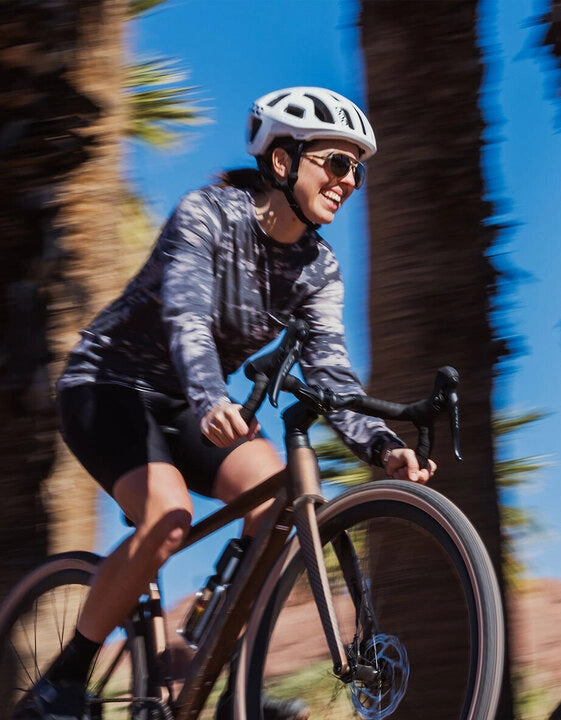In early summer 2019, Allied Cycles Works introduced its newest gravel bike, the Able, right before the biggest event of the season. At 200 miles long, covering rough, hilly Kansas terrain, the race now known as Unbound Gravel is legendary for battering riders and bikes. When the dust settled, Allied had made a big splash in the growing world of gravel. Colin Strickland and Amity Rockwell won the men’s and women’s races, respectively, aboard the new Able gravel bike. My interest was immediately piqued, and I had to find out more about this American bike company.
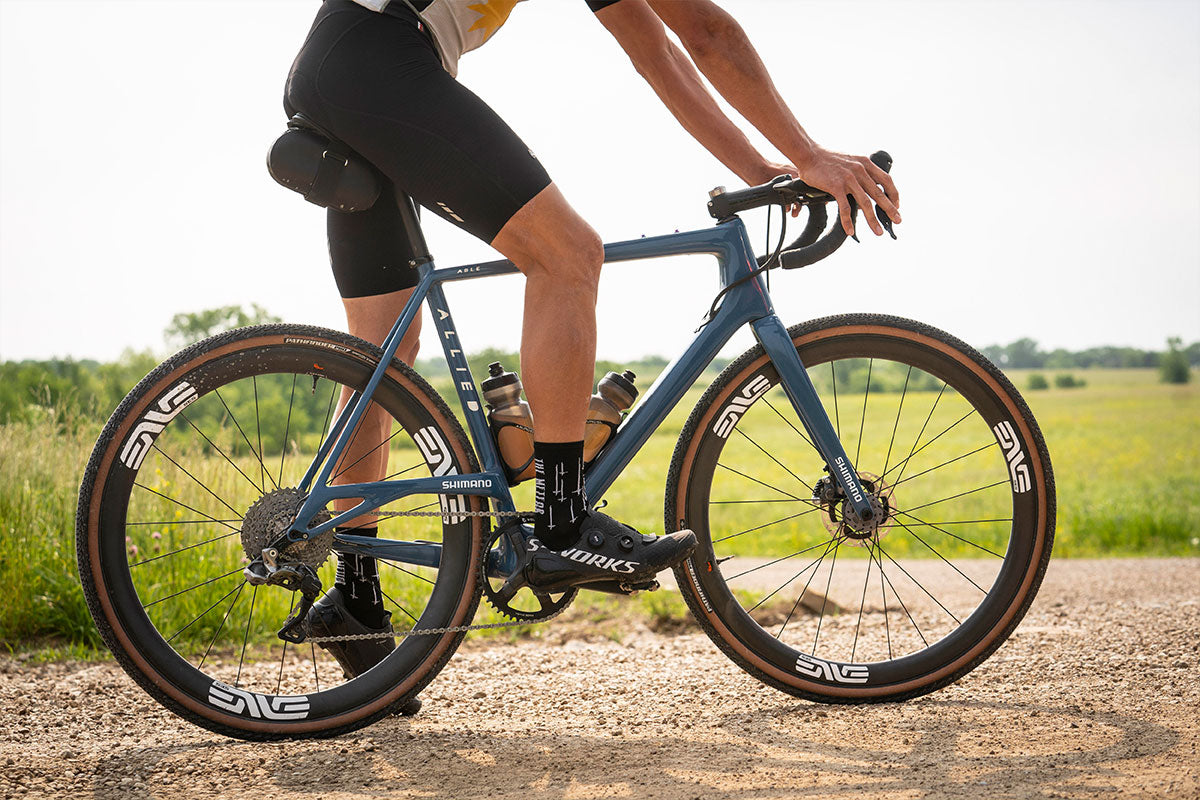 The DK-winning Allied Able
The DK-winning Allied Able
Bikes from Allied Cycle Works are unlike almost anything else you’ll see on the road. Like a lot of bikes, they are made from carbon fiber. However, unlike nearly any other carbon bike, they are proudly American-made in Little Rock, Arkansas. To accomplish this, Allied brought some of the most experienced and brightest minds in the industry together to produce its frames from the ground up.
I spoke with Brendan Quirk, CEO of Allied Cycle Works, and Sam Pickman, director of product, to learn more about how Allied got started, what drives Allied to produce bikes in the U.S., and what sets them apart from major bike brands.
1. Allied built upon the carbon manufacturing infrastructure still left in North America to breathe new life into American-made carbon bikes.
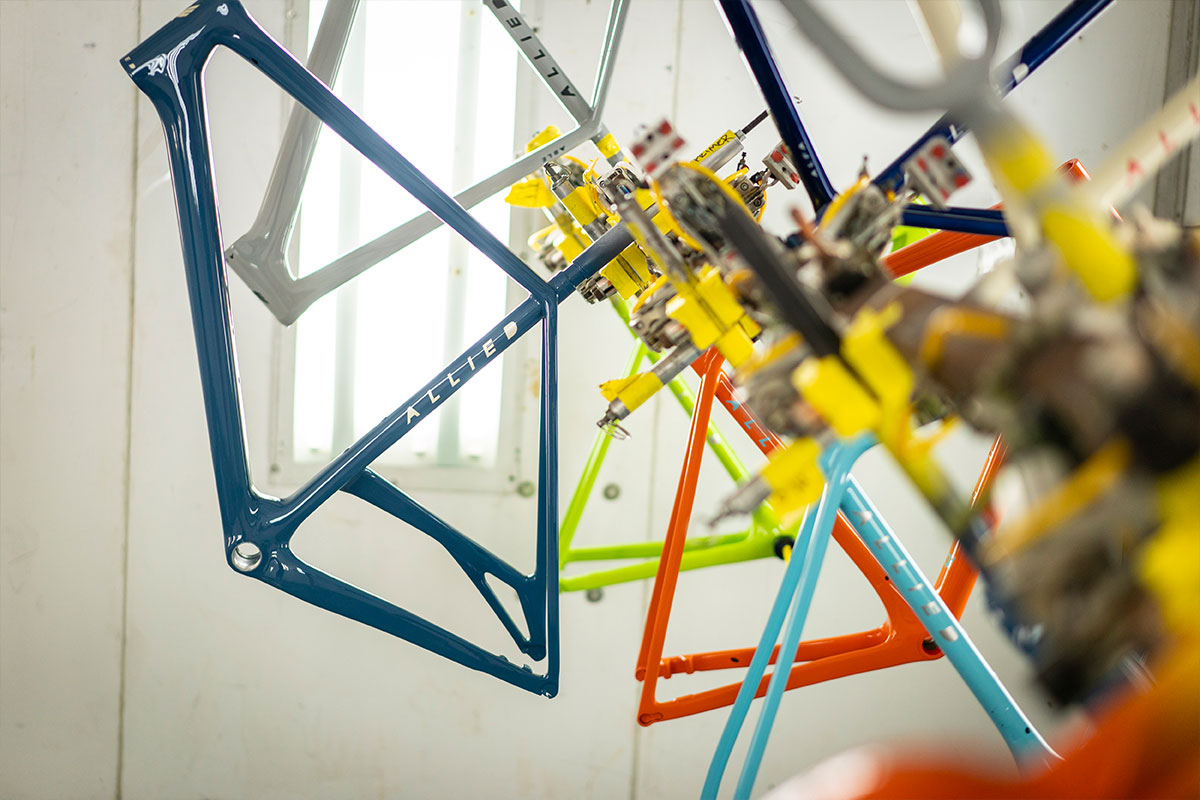 The vast majority of bike companies have moved their carbon frame production to Asia, and it makes sense. A large manufacturing infrastructure already exists there, and the costs are low. To buck this trend, Allied bought tooling and infrastructure from the renowned but defunct Guru Cycles. With this foundation, Allied has forged its own path making high-performance bicycles of its own design.
The vast majority of bike companies have moved their carbon frame production to Asia, and it makes sense. A large manufacturing infrastructure already exists there, and the costs are low. To buck this trend, Allied bought tooling and infrastructure from the renowned but defunct Guru Cycles. With this foundation, Allied has forged its own path making high-performance bicycles of its own design.
Brendan Quirk: "The story is a bit unusual. Basically, it started at a bankruptcy auction. Guru, which was a highly regarded Canadian frame manufacturer, went out of business. We acquired the assets and said, ‘Hey, look, they were making frames in Canada. It’s a pretty cool idea. If the product pipeline and general strategy are a little bit different, we could start a new company using all of this amazing infrastructure.’ So all of the tooling and infrastructure was moved down to Arkansas.
"Over time, just as a function of the bikes we wanted to make, a lot of that infrastructure and tooling actually got replaced. In spirit, we’re connected to Guru, but in reality, that connection’s now pretty faint. Guru was known for metal bikes, triathlon, and some carbon. Where we’re going with Allied is a completely different direction. It’s all carbon road and gravel bikes. And we’re definitely aggressive and ambitious when it comes to getting into gravel. We really believe in that movement."
2. Staying American-made is challenging, but it helps Allied operate more responsibly and openly, and improve quality control and R&D.
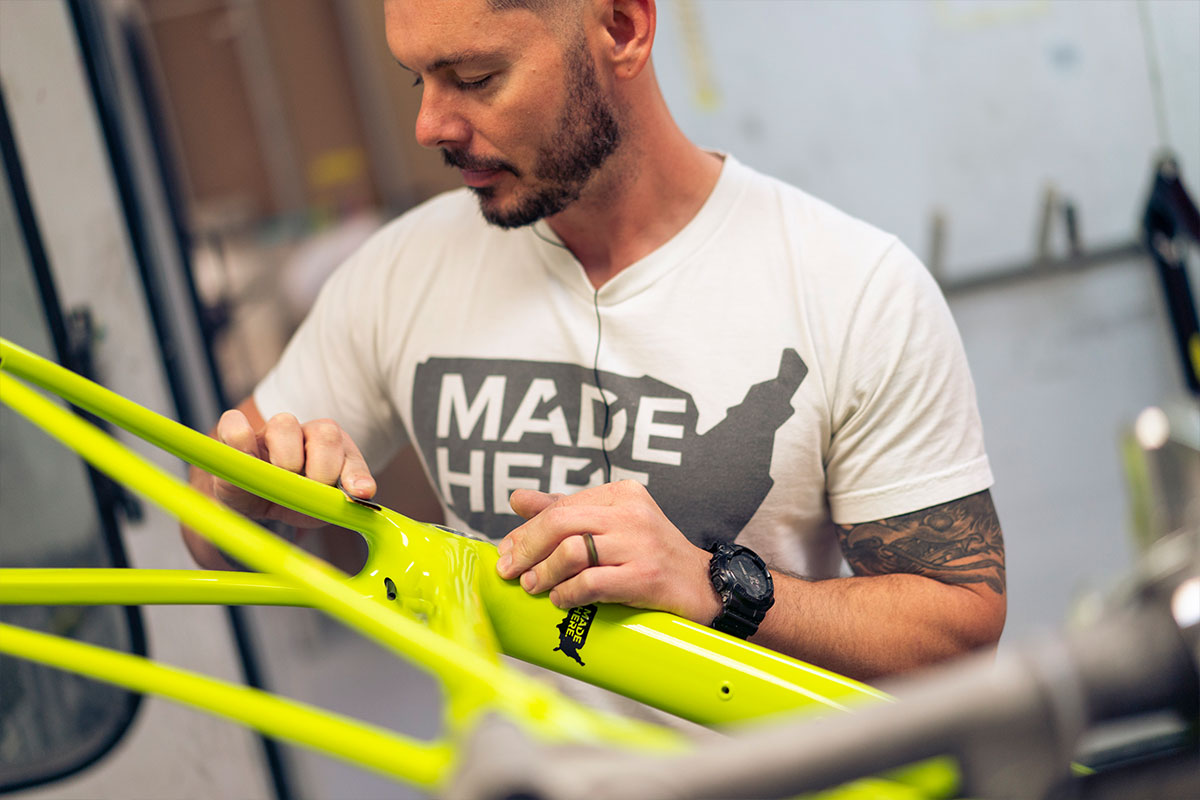 Allied has overcome many of the difficulties that come with American manufacturing. But doing so has allowed Allied to produce higher quality products.
Allied has overcome many of the difficulties that come with American manufacturing. But doing so has allowed Allied to produce higher quality products.
Sam Pickman: "The thing is you don’t just snap your fingers and say, ‘I want to be a carbon fiber producer,’ and end up making the best bikes in the world in two months. It doesn’t work like that. Just like anything else it takes time and dedication, and a lot of training. It definitely takes time to figure out all the steps of the process and do them well. We’re at that point now, but there have been lots of challenges.
"We’re competing against manufacturers who don’t have to follow the same rules as us. They don’t have to follow the same rules in terms of how they treat their people, in terms of how they pay their people, or follow the same environmental regulations or safety regulations. We're playing a game where there are two sets of rules for each team.
"But the transparency into our process, the care that we take, and the quality of product that we produce as a result I think are all huge benefits. It’s an essential part of being a responsible company today."
BQ: "The main advantage as far as we’re concerned is quality control. If you tour our factory, on one end is literally a roll of prepreg carbon fiber. We start with the rawest of raw material and turn it into a fully painted, ready to be built bike frame, all under one roof. Every step is done here, the layup, the molding, the bonding, the paint. It’s exceptionally difficult, especially here in the U.S., to do that in a way where the economics of the business makes sense.
"We’re trying to prove that you can do it. And we’re trying to prove, from a rider standpoint, that it’s great to do this because when you have such tenacious oversight over every step of the process, the quality control is unlike anything else you’re going to get from any other manufacturer.
"Most bike companies, they’re not manufacturers, they’re designers, and they outsource manufacturing. Their supply chain is 12 time zones away. The amount of risk intrinsic to that in terms of quality control sort of speaks for itself. For us, we can have this tenacity toward quality control, and tenacity about continuous improvement in our products that you can only have when you own your whole supply chain from end-to-end."
SP: "One of the main reasons I left one of the big bike makers is because of that outsourced model. It makes it really difficult to come up with new ideas and develop new things if you don’t have the ability to also innovate the processes at the same time. So what would inevitably happen is we would come up with an idea, try to get our factories to buy in to develop it, and often they’d just not feel like doing it for one reason or another.
"It’s complicated to change things in a factory setting. You run into these obstacles where the people who are making your product are in a totally separate business and they have different objectives than you have. So that’s one of the main reasons I left because I felt like there was so much opportunity to be had on the process side."
3. Being American-made gives Allied an advantage when it comes to product development and innovation in the manufacturing process.
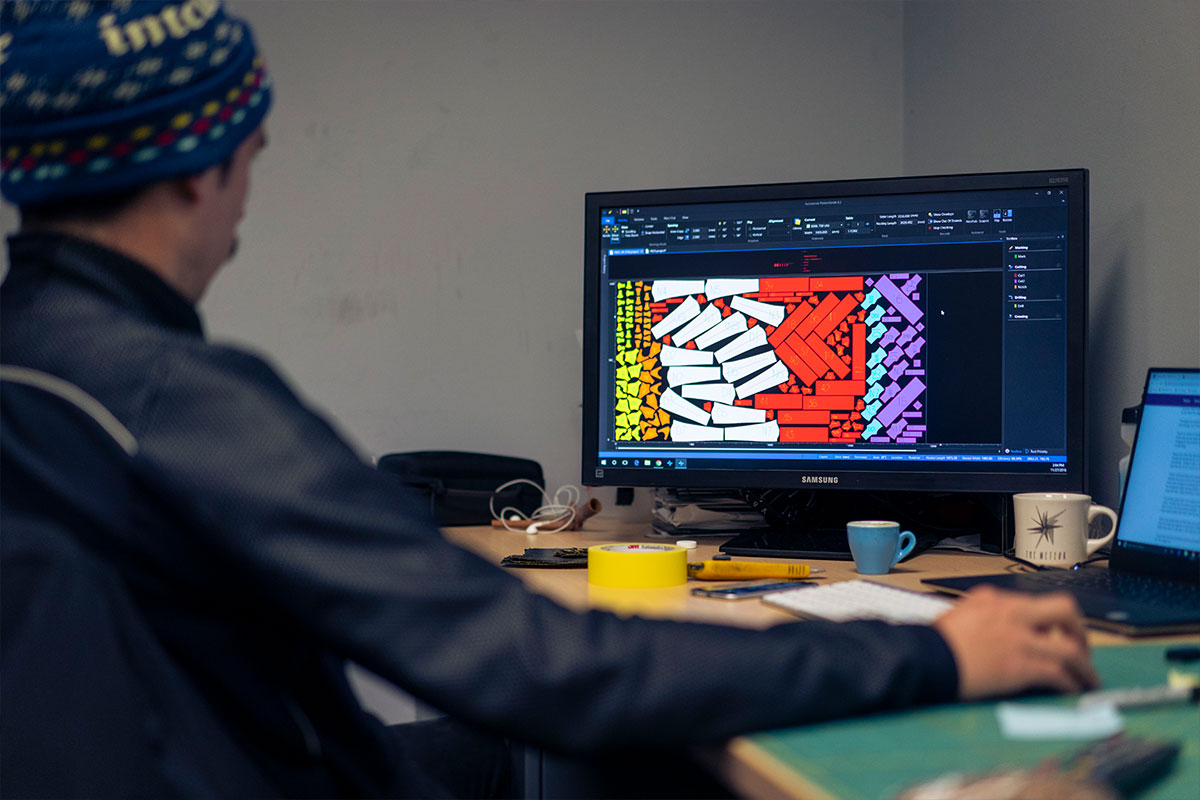 Because everything from design, to engineering, to testing, to manufacturing is done under one roof, it allows Allied to be agile so they can innovate more freely and stay on top of trends.
Because everything from design, to engineering, to testing, to manufacturing is done under one roof, it allows Allied to be agile so they can innovate more freely and stay on top of trends.
SP: "When developing a product with an outsourced manufacturer, you hand them a 3D drawing and they return a part. Depending on the size of the company you may or may not have a lot of involvement in that process. If you're smaller, you may just send CAD and then out comes something several months later.
"You obviously need to test the product to make sure it’s meeting your requirements for your customers. Even some of the bigger companies, when they get the first round of samples, they’ll test them, break them, and dissect them to figure out what’s going on with the product. Then they’ll get on a video conference halfway across the world with their vendor, describe the changes they want, and the vendor will make the revision. That whole cycle between when you broke the first one to when you get the changes and break the second one will be about a month’s time.
"For us, when we make a bike we know exactly what it took to make it because we made it ourselves. Our test lab is right here. We break it, then we make changes that next day and we’re testing a new one within 24-48 hours. So the cycle that was taking about a month to go from revision to revision takes us about 24-48 hours.
"To go from the first tooled part to the production part for us is extremely compressed. We’re taking what’s generally a six-month process and doing it in about a month."
4. Allied is fully committed to building and innovating road and gravel bikes using carbon fiber.
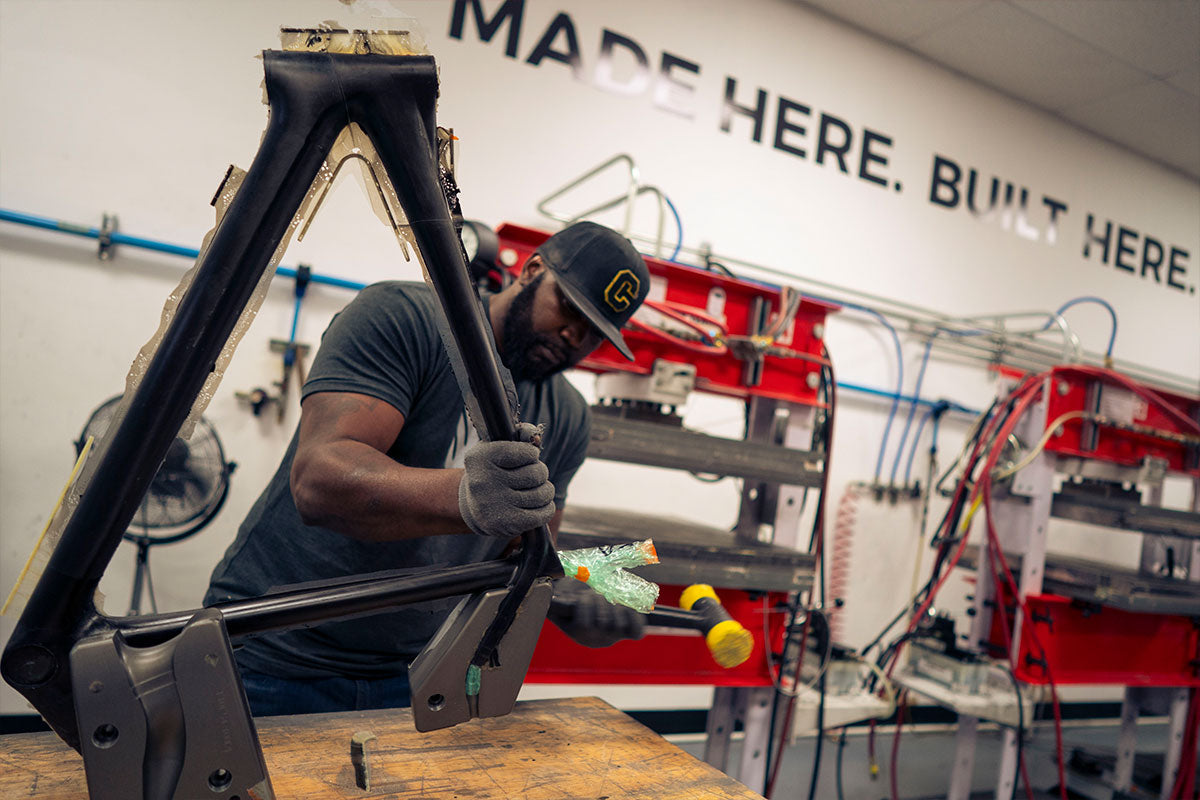 Carbon is the cornerstone of modern high-performance bikes. Allied doesn’t want to just produce American-made bikes, they want to make beautiful, long-lasting bikes that are also among the highest performing bicycles on Earth. This is why carbon fiber is Allied’s material of choice.
Carbon is the cornerstone of modern high-performance bikes. Allied doesn’t want to just produce American-made bikes, they want to make beautiful, long-lasting bikes that are also among the highest performing bicycles on Earth. This is why carbon fiber is Allied’s material of choice.
SP: "For me personally, there is absolutely no doubt that, as a structural material, carbon is the best one for bicycles. If you’re talking about metals, metals have the same properties in all directions. It doesn’t matter which direction you pull on it. It’s isotropic, the same in all directions. If you want to change how a metal bike feels, you have very little variables to play with. You have the thickness of the material and tube size.
"With carbon, you unlock a whole different world. You can control the properties of that part along the tube because it is anisotropic. You can have incredible properties in one direction and they’ll change as you pull in different directions. What it allows you to do is change and tweak the characteristics that affect how a bike feels along the tube to hone it to do pretty much whatever you want it to do. It just gives you an unbelievable amount of control."
5. Allied uses Innegra in its carbon layups to improve performance.
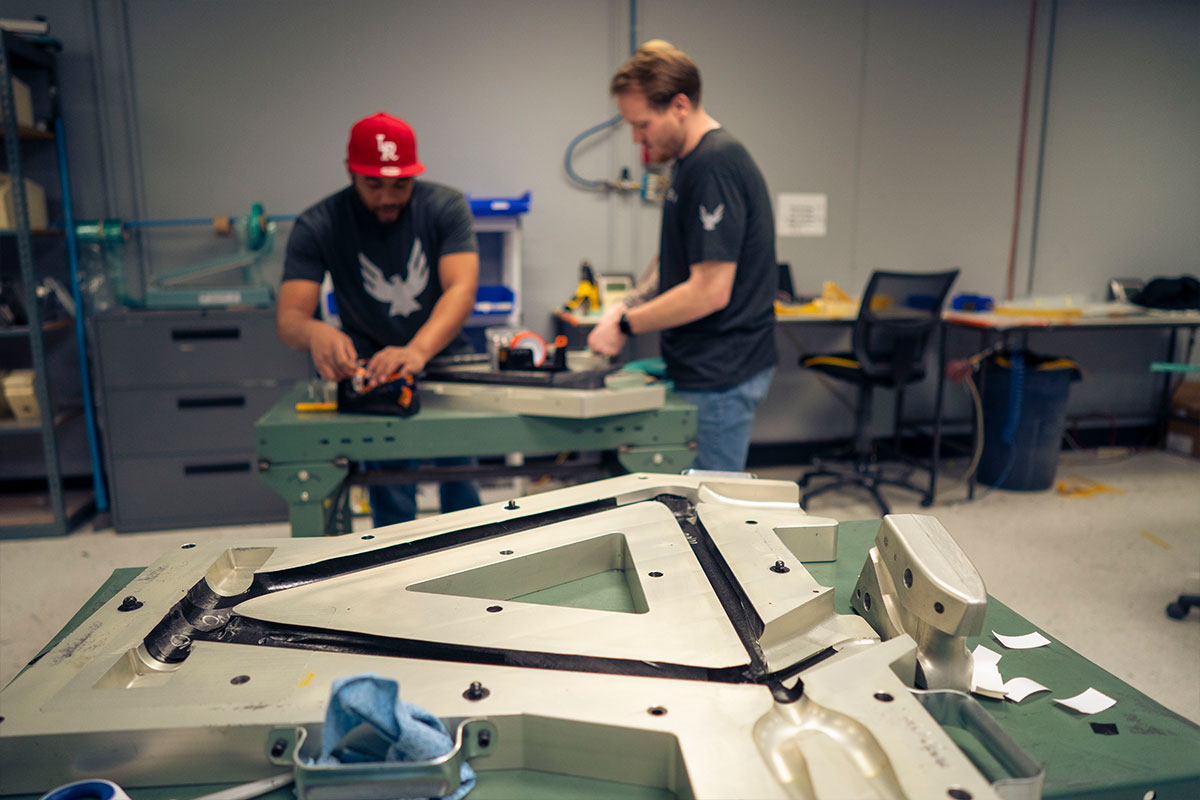 Allied works with Innegra Technologies, who specializes in lightweight high-performance fibers, as their exclusive bicycle development partner to produce frames that are stronger, more resilient, and better damped.
Allied works with Innegra Technologies, who specializes in lightweight high-performance fibers, as their exclusive bicycle development partner to produce frames that are stronger, more resilient, and better damped.
SP: "Carbon is incredibly strong, its strength to weight is unbelievable, but the problem is it doesn’t have really good ductility or toughness. So if you get some local impact, it can go to fracture pretty quickly. It just reaches the point where it’s had enough and just breaks.
"Innegra is a material that’s not carbon at all. It’s actually a plastic — it’s polypropylene. Polypropylene doesn’t tear or rip at all. It’s not stiff or particularly strong, but it’s incredibly tough. What we’re doing when we layer in the Innegra with the carbon, we’re adding a layer of toughness in and amongst the really strong and stiff fibers.
"It provides what is almost like a skeleton. If you were to have a bad crash on a regular carbon bike and you just hop up and started riding again, you may have damaged your bike to where 10 miles down the road it might break in two just from the regular stresses of riding. But the Innegra kind of holds everything together, and you can get home. The idea isn’t to prevent it from breaking but to prevent it from breaking catastrophically. Because it’s a dissimilar material, the laminate actually does dampen some of the vibrations too."
6. Allied builds high-performance road bikes like the Alfa, but it has a love affair with gravel cycling.
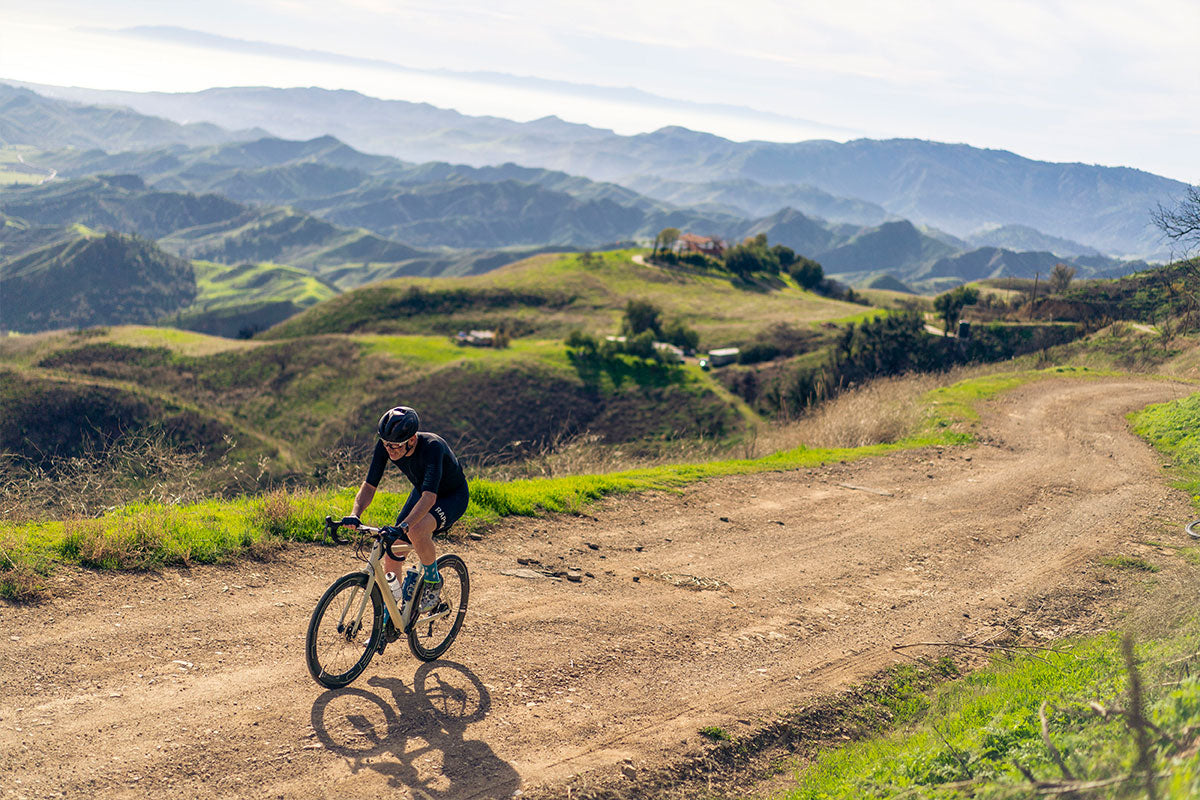 Arkansas has some of the best gravel riding in the world. The people at Allied are passionate about riding gravel so building some of the best gravel bikes possible and winning major gravel events were inevitable results. Allied now offers two high-performance gravel models to suit rider needs and terrain.
Arkansas has some of the best gravel riding in the world. The people at Allied are passionate about riding gravel so building some of the best gravel bikes possible and winning major gravel events were inevitable results. Allied now offers two high-performance gravel models to suit rider needs and terrain.
BQ: "Most of the folks here have a deep background in road cycling and our experience is no different from a lot of other folks in America who are becoming more concerned about the dangers on the road. The cool thing is that the industry as a whole is adapting to build bikes that handle really well on gravel roads so you get all the love of road cycling with none of the traffic and a lot more adventure. You can get out to places you might otherwise never go.
"We all collectively kind of fell in love with gravel. We now offer two gravel bikes, because we love the sport so much. The Allroad has road racing characteristics. Imagine if you took the Alfa and tweaked the geometry and put on 35c knobbies and you get the Allroad. There’s a lot of gravel where that’s all you need.
"Then you get into bigger, nastier, rockier gravel, or might be mixing in singletrack into a really long adventure ride, that’s what the Able is for. You can go have the ultimate adventure on that bike but it’s still a very race-worthy machine. Colin Strickland and Amity Rockwell won DK on the Able. Colin also won the Rift in Iceland and the Queen Stage of Rebecca’s Private Idaho.
"There is always and will always be a place for great road bikes like the Alfa. But the plate tectonics of the industry are shifting toward gravel and we have the luxury of being small so we can push our poker chips in for gravel. As events develop in the US and throughout the world, it’s becoming the future for participation in cycling.
"It’s great to be able to offer customers different options, and we really get a kick out of when passionate customers buy one of each bike to be ready for anything. We’re working very hard so when people think about the best gravel bike they can buy they think of Allied."
7. Allied has plans to use its carbon expertise to push its product offerings further in the future.
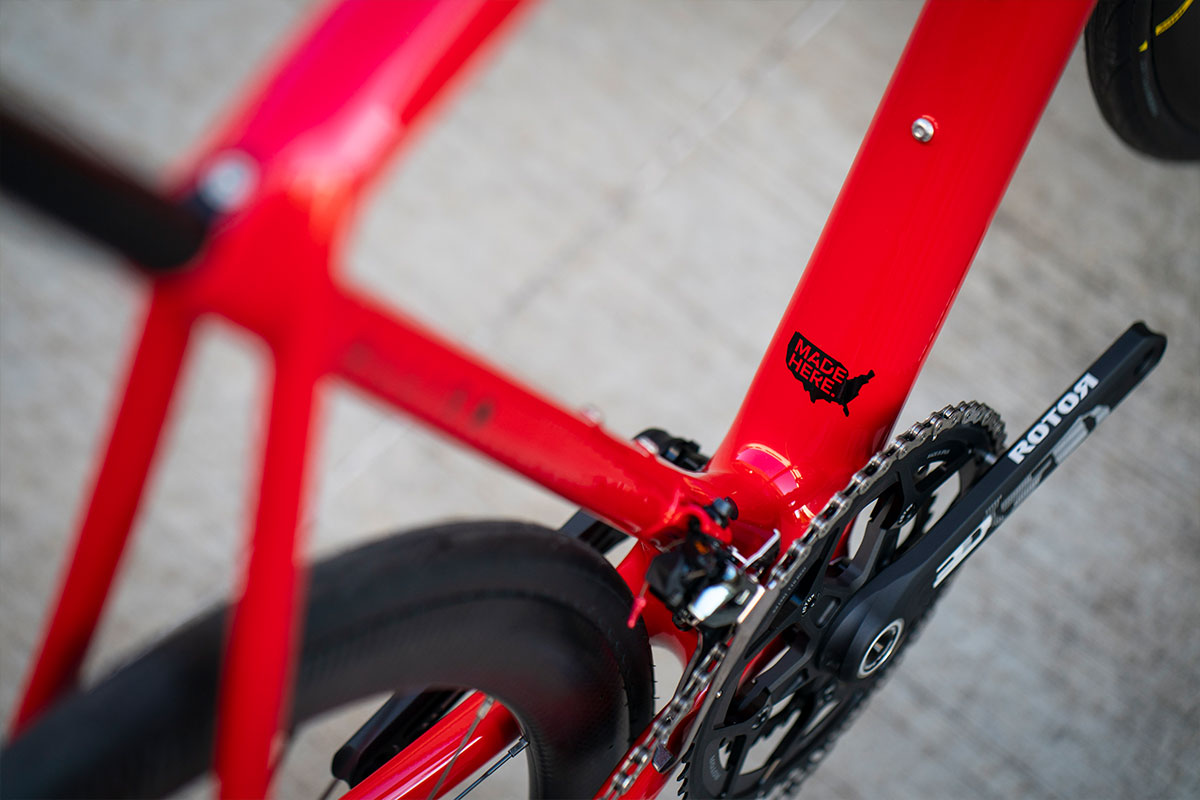 Allied has been able to produce several innovative, high-quality, high-performance bikes in America. But they don’t plan to stop there. Expect more great things to come.
Allied has been able to produce several innovative, high-quality, high-performance bikes in America. But they don’t plan to stop there. Expect more great things to come.
BQ: "The big existential question for us with Allied is if you take these principles that are non-negotiable — being made in America and being of extraordinarily high quality — does that framework only apply to producing bicycle frames, or can it be applied to other products that are consistent with our brand ethos?
"That’s an area where we’re spending a lot of time, expansion into adjacent spaces where we don’t have to compromise on our principles. Sam’s led some cool R&D around that and my hope is that by 2021 you’ll begin to see some of the fruits of that R&D."
